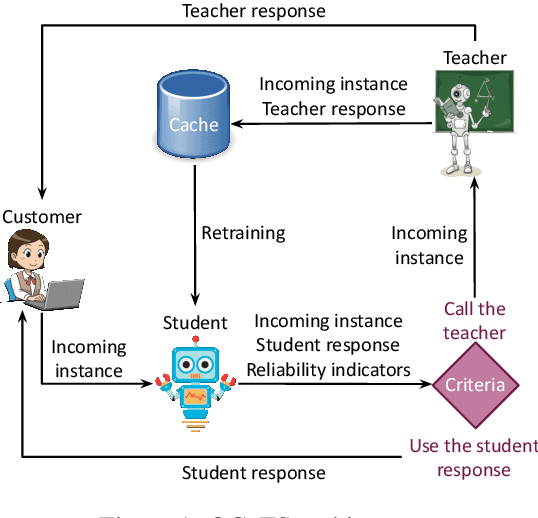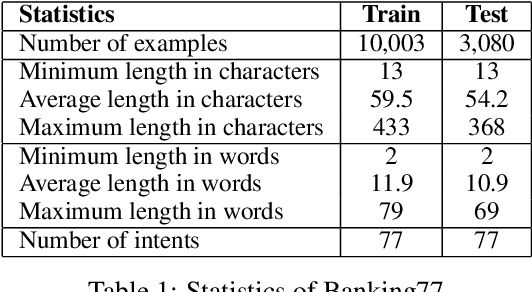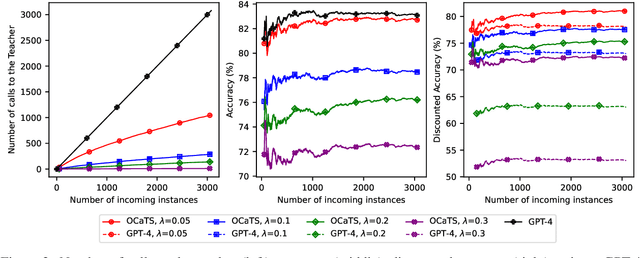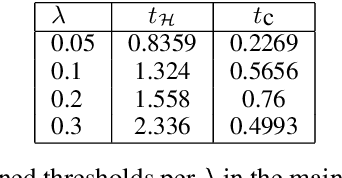Cache me if you Can: an Online Cost-aware Teacher-Student framework to Reduce the Calls to Large Language Models
Paper and Code
Oct 20, 2023



Prompting Large Language Models (LLMs) performs impressively in zero- and few-shot settings. Hence, small and medium-sized enterprises (SMEs) that cannot afford the cost of creating large task-specific training datasets, but also the cost of pretraining their own LLMs, are increasingly turning to third-party services that allow them to prompt LLMs. However, such services currently require a payment per call, which becomes a significant operating expense (OpEx). Furthermore, customer inputs are often very similar over time, hence SMEs end-up prompting LLMs with very similar instances. We propose a framework that allows reducing the calls to LLMs by caching previous LLM responses and using them to train a local inexpensive model on the SME side. The framework includes criteria for deciding when to trust the local model or call the LLM, and a methodology to tune the criteria and measure the tradeoff between performance and cost. For experimental purposes, we instantiate our framework with two LLMs, GPT-3.5 or GPT-4, and two inexpensive students, a k-NN classifier or a Multi-Layer Perceptron, using two common business tasks, intent recognition and sentiment analysis. Experimental results indicate that significant OpEx savings can be obtained with only slightly lower performance.
 Add to Chrome
Add to Chrome Add to Firefox
Add to Firefox Add to Edge
Add to Edge